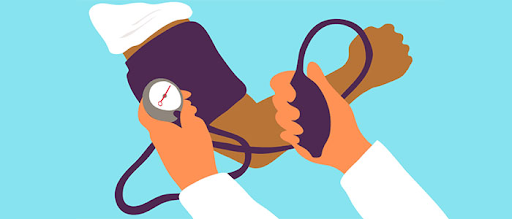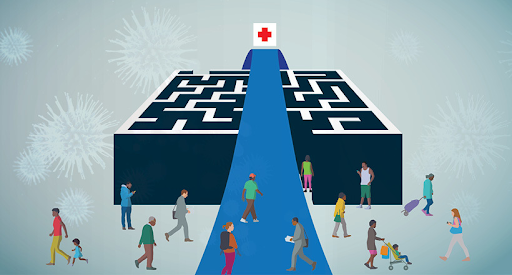Interview Highlights: The Effects of Asthma on COVID-19 Outcomes With Stephanie Lovinsky-Desir6/22/2020
By: Hannah Lin (CC '23)
The following is a heavily condensed version of the full interview. If you're interested, read more here. Could you talk about your background as a researcher and your research prior to COVID-19? I do a lot of research on asthma, mostly asthma in children, and I’m also very interested in health disparities. I’ve been very much inspired to investigate sources of disparities in asthma outcomes, particularly in minority and underrepresented populations in urban communities. Given your expertise and prior work, it must have been a pretty natural step, once the pandemic came around, to switch the course of your research to analyzing COVID-19 in people with asthma. Absolutely. Not only do I do research in this field, I take care of children with asthma. As the pandemic started to hit, there was this question of, “are my pediatric patients or any patients who have asthma at greater risk for having bad outcomes from COVID-19?” It was a natural question that we felt we were in a great position to be able to answer, being at the epicenter of the COVID-19 pandemic. Could you talk more about your COVID-19 research and the work you’ve been doing in the past couple months?
We were really interested in seeing if having an underlying diagnosis of asthma set people up for worse outcomes. Basically, the punchline is that we didn’t see any significant differences in those individuals who had an underlying diagnosis of asthma compared to those individuals who didn’t have a diagnosis of asthma. It’s really important, though, that I recognize one of the limitations: we’re not able to say from this analysis if having a diagnosis of asthma puts you at greater risk for actually getting COVID-19.
While we didn’t see any differences even when we accounted for the different comorbidities and obesity, we did see that the incidence of asthma among those hospitalized with COVID-19 was a bit higher in that younger age group (those less than 21 years old)—about 24% of them had a history of asthma, whereas in the older patients that were older than 21 and up to 65 years of age, the prevalence of asthma was about 13%. What do the next steps look like for your research? I have a couple of other things in the pipeline related to COVID-19, although I never imagined myself to be a COVID-19 researcher. I don’t think I ever imagined myself to be a researcher during the time of a global pandemic. I think, in science, we have to go where the questions take us, so right now, the question is: how is COVID-19 affecting our population and the people we care for?
I was also a part of another effort looking at health disparities in COVID-19. We have a manuscript that’s currently awaiting publication as well. It’s less data-specific and more theoretical frameworks of how racism sets certain populations up for worse outcomes of disease and giving information to our colleagues on why that might be. It has some action items that people can work towards to help mitigate health disparities as they relate to COVID-19.
For the general public, as a medical doctor, what are the big pieces of advice you want to shout from the rooftops? Let me tell you: with everything opening up right now, people who have been hibernating for many months, and people who are just itching to get out there and be connected with their loved ones, doing things that make them feel normal again because there is nothing that has felt normal in the last three months, I’m a little nervous. What I want people to keep in mind is that this was bad. This was really, really bad. It didn’t affect everyone equally, and I think the fact that some people felt it harder than others adds to why certain populations might feel more and more comfortable as we open up.
Lastly, to end with some optimism, I always like to ask: what gives you hope for the future? Related to your research, science more broadly, or life in general. I think one of the things this pandemic has taught us is resilience. I think so many of us were forced, pushed, and shoved into a setting that none of us thought we would be comfortable with, but somehow we’ve managed to survive and thrive. I think that is what gives me the most hope: knowing that we are a resilient group of people and when thrown in an environment
0 Comments
Your comment will be posted after it is approved.
Leave a Reply. |







